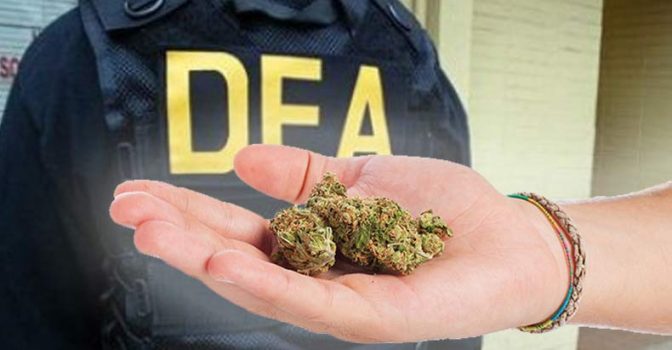DEAjà Vu: Agency Refuses to Reschedule or Deschedule Marijuana, Again

On Aug. 11, the United States Drug Enforcement Administration declared that it had rejected a pair of administrative rescheduling petitions challenging the federal classification of cannabis as a Schedule I controlled substance with no accepted medical utility. Their decision continues to classify marijuana in the same category as heroin under federal anti-drug laws.
The petitions that triggered this latest DEA action were filed by former Washington State Gov. Christine Gregoire, former Rhode Island Gov. Lincoln Chafee and a nurse practitioner. Under the Controlled Substances Act (CSA) of 1970, the cannabis plant and its organic cannabinoids are classified as a Schedule I prohibited substances—the most restrictive category available under the law. By definition, substances in this category must meet three specific inclusion criteria: Possess “a high potential for abuse,” have “no currently accepted medical use” and lack “accepted safety for use… under medical supervision.”
Substances that don’t meet these criteria must, by law, be categorized in less restrictive federal schedules (Schedules II through V) and are legally regulated accordingly. Alcohol and tobacco, two substances widely acknowledged to possess far greater dangers to health than cannabis, are not classified under the CSA.
The DEA previously rejected several other rescheduling petitions, including a 2002 petition filed by a coalition of marijuana law reform and health advocacy organizations and a 1972 petition filed by NORML. (That petition was not acted upon by the agency until 1988, and was ultimately set aside by the DEA in 1990.)
In its decision to keep marijuana in its current federal status, the DEA stated that marijuana has no “currently accepted medical use… the drug’s chemistry is not known and reproducible; there are no adequate safety studies; there are not adequate and well-controlled studies proving efficacy; the drug is not accepted by qualified experts; and the scientific evidence is not widely available. There is no evidence that there is a consensus among qualified experts that marijuana is safe and effective for use in treating a specific, recognized disorder. At this time, the known risks have not been shown to be outweighed by specific benefits in well-controlled clinical trials that scientifically evaluate safety and efficacy.”
The DEA’s Acting Administrator Chuck Rosenberg piled on with this comment: “This decision isn’t based on danger. This decision is based on whether marijuana, as determined by the FDA, is a safe an effective medicine, and it’s not.”
Despite all this negative news, the DEA put a kibosh on the gateway theory that marijuana use is a path to hard drugs like heroin and cocaine, adding: “Little evidence supports the hypothesis that initiation of marijuana leads to an abuse disorder with other illicit substances.”
But the real silver lining in the DEA’s latest action is revealed in a separate decision designed to expand the production of research-grade cannabis for FDA-approved clinical studies. Presently, any clinical trial involving cannabis must access source material cultivated at NIDA’s research facility at the University of Mississippi. Instead, for the first time, the DEA will consider applications from multiple parties, including potentially private entities, to produce marijuana for FDA-approved research protocols as well as for “commercial product development.”
Rosenberg added: “As long as folks abide by the rules, and we’re going to regulate that, we want to expand the availability, the variety, the type of marijuana available to legitimate researchers. If our understanding of the science changes, that could very well drive a new decision.»
Ultimately, though, the DEA’s decision is a political one. While their announcement is a significant step toward better facilitating and expanding clinical investigations into cannabis’ therapeutic efficacy, ample gold-standard clinical trial evidence already exists to remove cannabis from its Schedule I classification and to acknowledge its relative safety compared to other scheduled substances, like opioids, and unscheduled substances, such as alcohol.
Since the DEA has failed to take such action, it’s incumbent that members of Congress act swiftly to amend cannabis’ criminal status in a way that comports with both public and scientific opinion. Failure to do so continues the federal government’s “Flat Earth” position on pot, willfully ignoring the well-established therapeutic properties associated with cannabis and the laws in 26 states recognizing marijuana’s therapeutic efficacy.
If you enjoyed this Freedom Leaf article, consider subscribing today!

